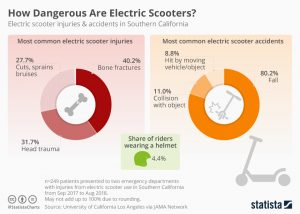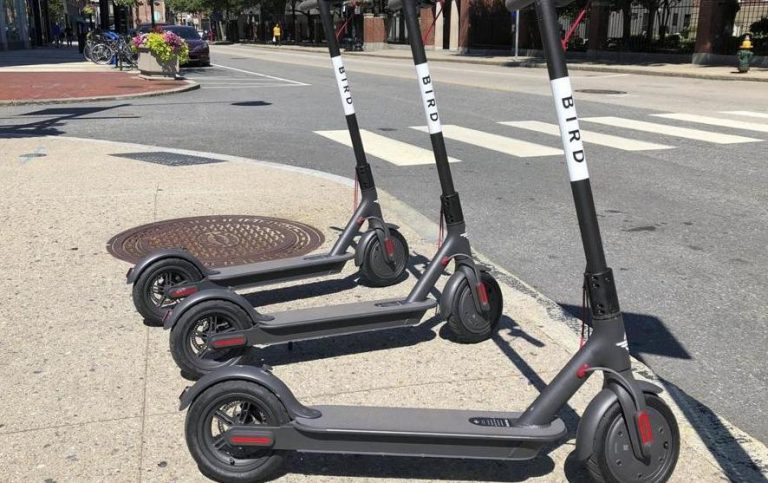Electric scooters are light, compact and ideal for quickly travelling through busy urban areas, especially when used together with public transport. They have become one of the hottest trends in the U.S. and many rental companies offer them for as little as $1 per hour with a few cents added on for each minute of usage. Unfortunately, even though the small and zippy scooters may seem like a dream for commuters, they can prove extremely dangerous for inexperienced riders. There are no official numbers on e-scooter deaths but fatal accidents have been reported in a host of cities worldwide including Singapore, London and Los Angeles.
Given heightened safety fears about the severity of e-scooter accidents, researchers in the U.S. have published a new study about injuries from these mishaps for the first time. The analysis was carried out by the University of California Los Angeles and published in medical journal the JAMA Network Open. Focusing on two emergency departments between September 2017 and August 2018, it found that 249 people involved in e-scooter accidents required medical care with a third of them brought to hospital by ambulance. Falls, collisions and getting struck by moving vehicles or objects were the most common accidents documented. The resulting injuries were severe with 40 per cent bone fractures, 31.7 per cent involving head trauma and 27.7 per cent cuts, sprains and bruises.
Poignantly, the study found that only 4.4 per cent of riders were wearing a helmet when their accident happened. Most e-scooter companies recommend wearing a helmet but there seems to be a very low adherence to the most basic safety guidelines. That lack of safety coupled with increasing numbers of e-scooters in circulation has led to greater scrutiny of the situation. There are an estimated 65,000 e-scooters on U.S. streets and there is now talk of a ban unless safety protocols are followed. As the discussion gets louder, the days of a rider with no helmet zipping by while listening to music on AirPods and sipping a coffee to go could thankfully be numbered.
source: statista.com

Ask me anything
Explore related questions





